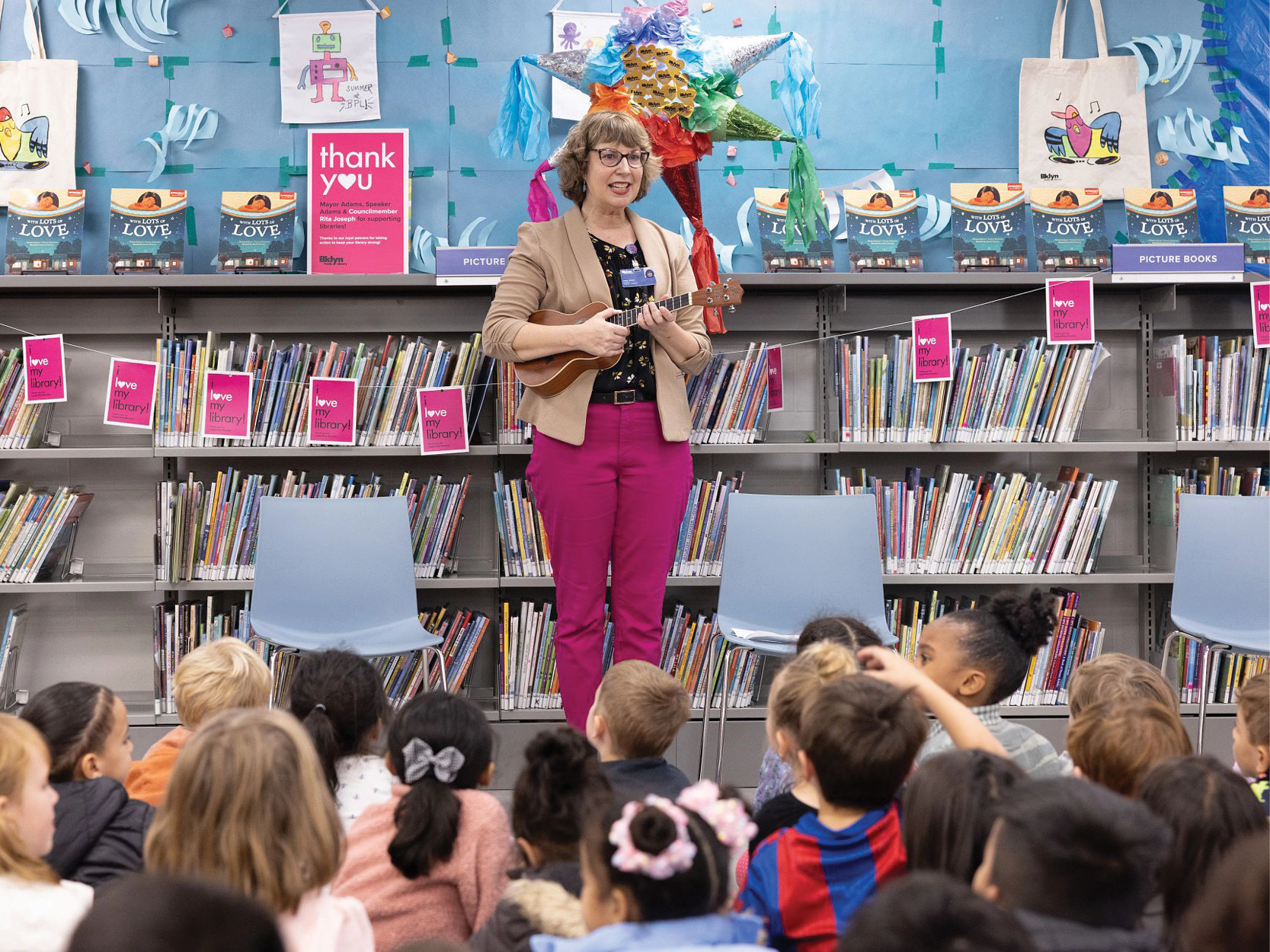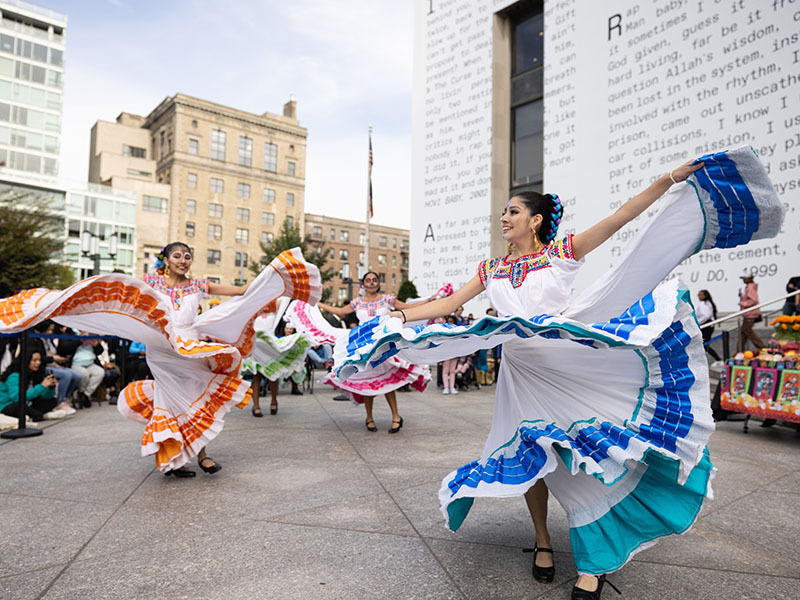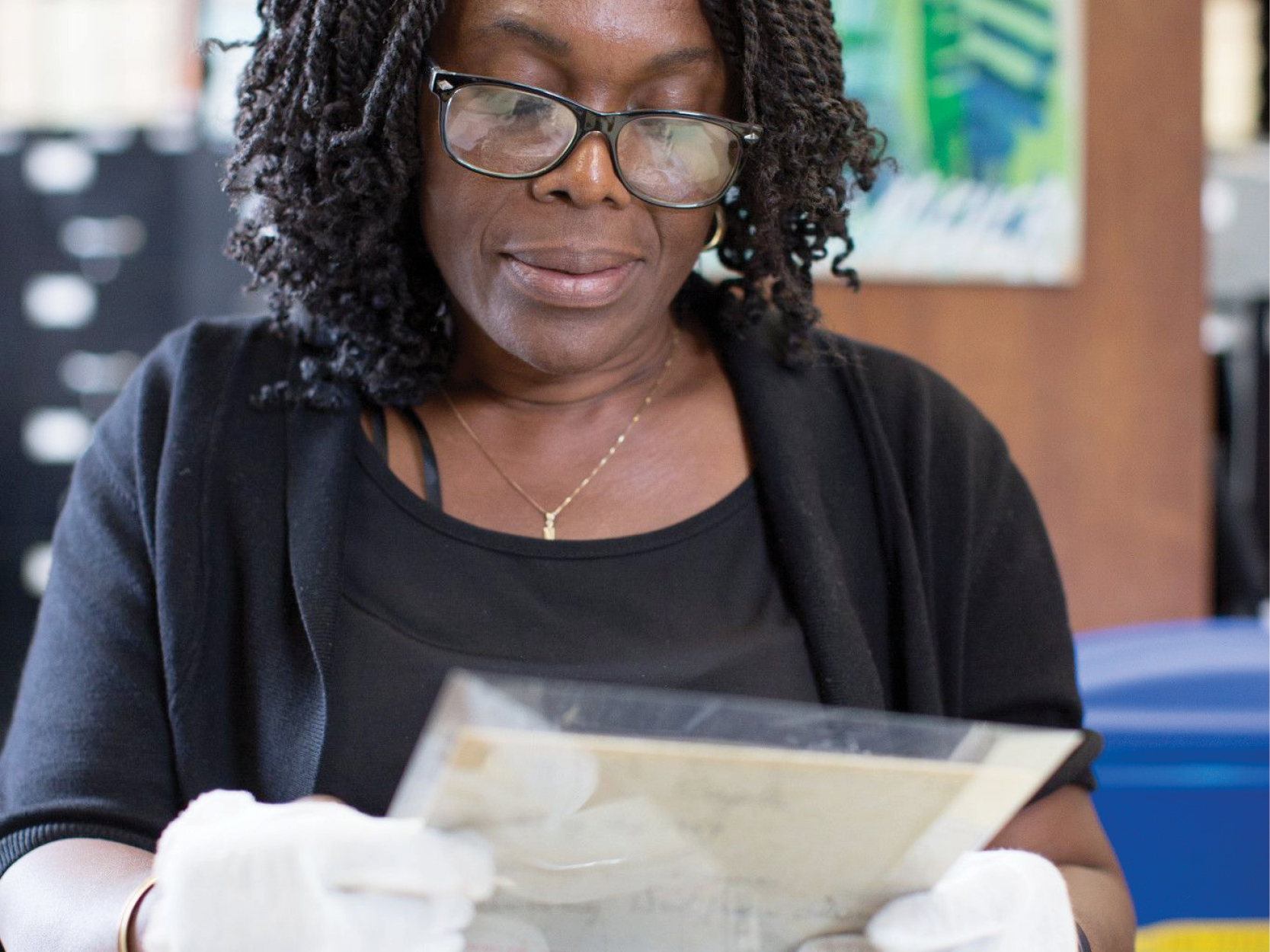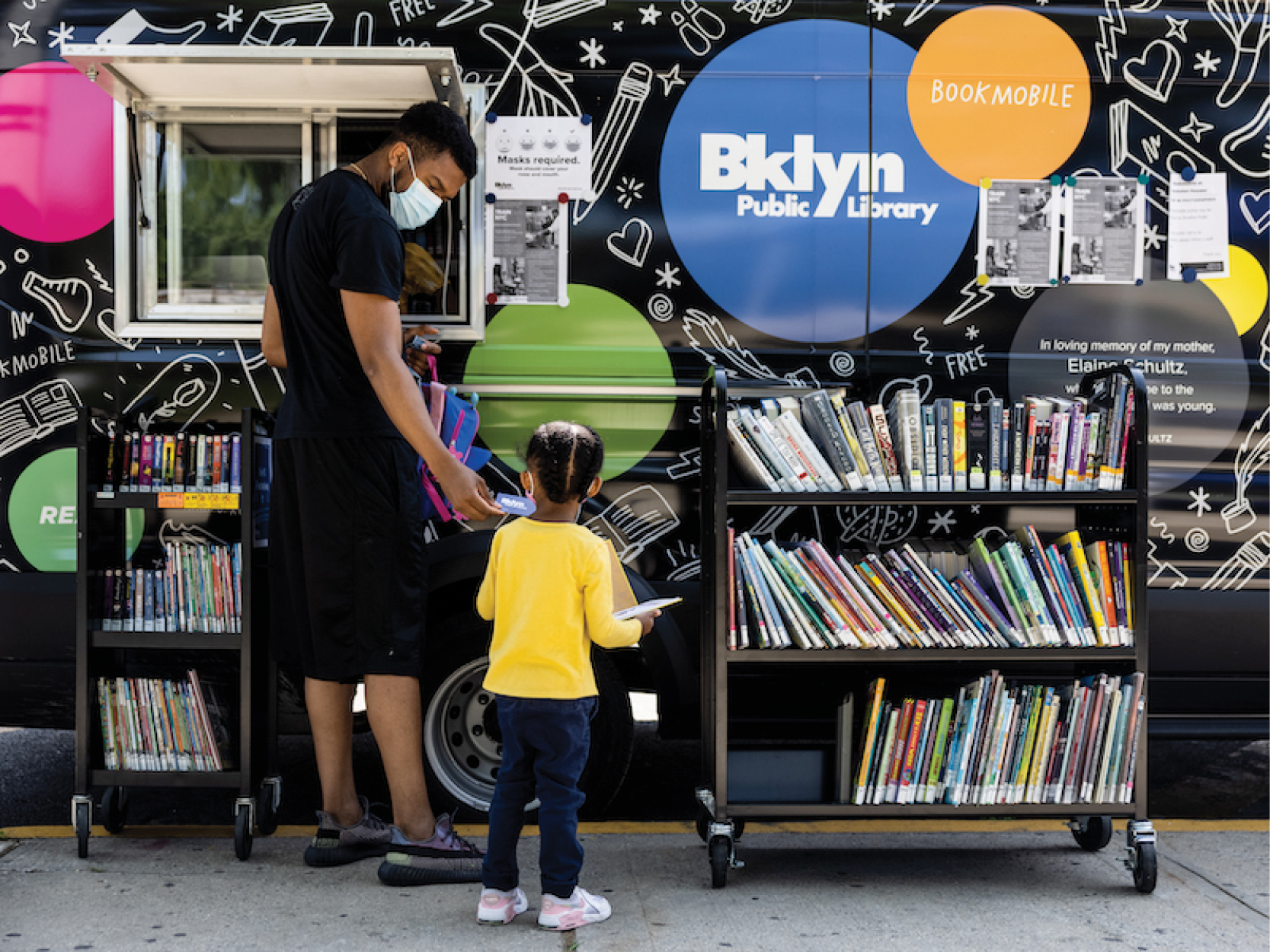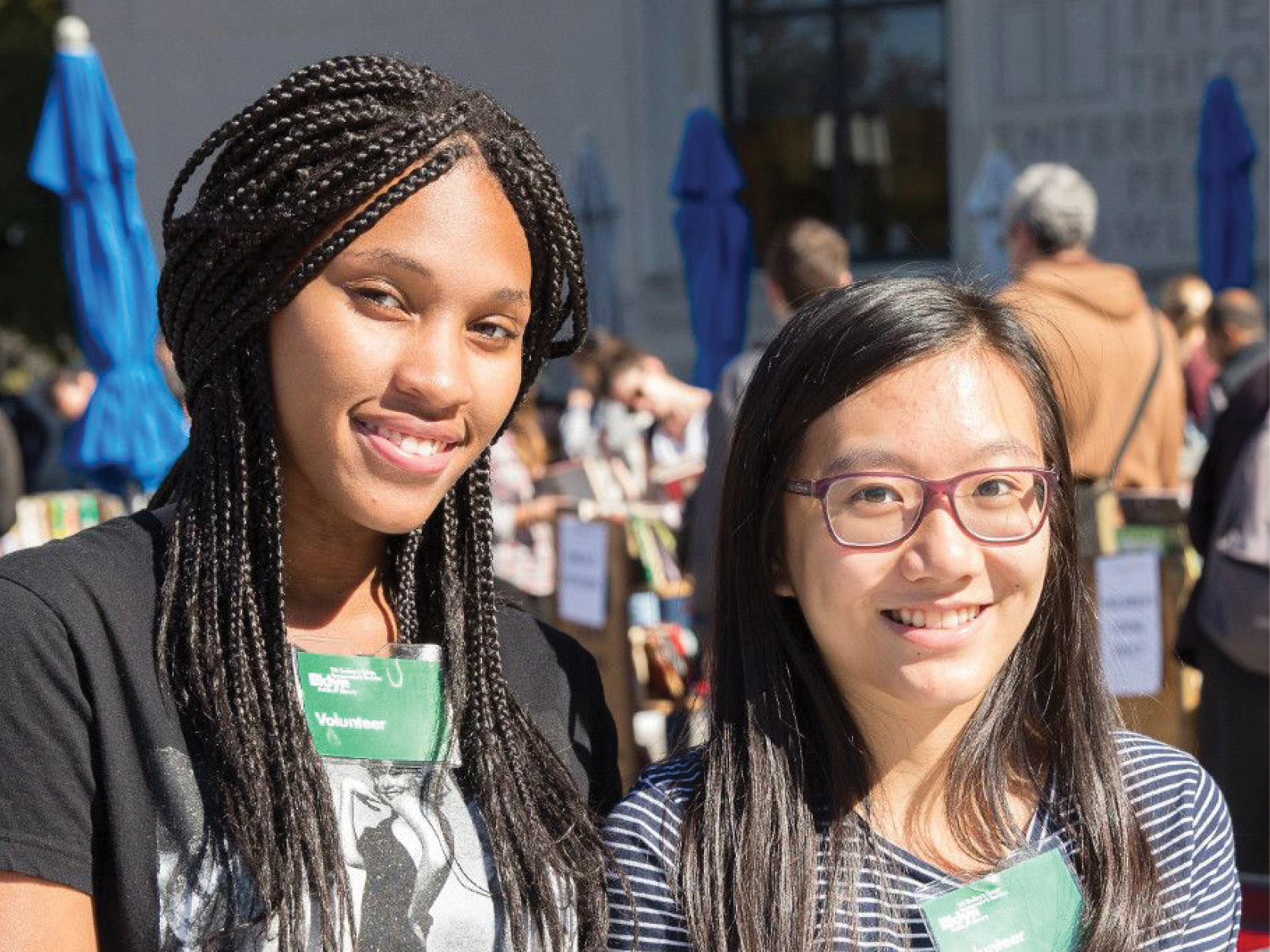 Cover of the exhibitions' program, 1994
Cover of the exhibitions' program, 1994Access to Brooklyn Historical Society’s oral history collections is now made possible through a generous grant by the National Historical Publications and Records Commission (NHPRC) for Voices of Generations: Investigating Brooklyn’s Cultural Identity, a project to digitize, process, catalog, and make accessible nearly 500 interviews from BHS’s earliest oral history collections that document the histories of Brooklyn’s diverse ethnic and cultural communities. With a goal of improved accessibility via thorough description, Oral History Project Archivist Brett Dion assists and supervises an intern team processing the collections, with project management by Oral Historian Zaheer Ali and Managing Director of the Library and Archives Julie I. May.
In August 1991, long simmering tensions between members of the Lubavitch Hasidim community and Black community of the Crown Heights neighborhood of Brooklyn erupted in unrest and violence. Two years later, BHS, Brooklyn Children’s Museum, and the Society for the Preservation of Weeksville and Bedford-Stuyvesant History (now Weeksville Heritage Center) started a collaborative project to examine the subtle community disconnects prior to that August, the feelings and meanings of the flashpoint events, and the existential unease and healing movements in the communities afterwards. For the mounting of exhibitions at all three institutions, cultural anthropologist Jill Vexler and historian Craig Wilder produced research and interviews with the Crown Heights neighborhood residents and then curated the exhibitions. Oral history interviews, conducted by Vexler and Wilder, with assistance from Aviva Segall, made up a substantial component of the exhibition preparation and exhibited materials.
From those interviews, I wanted to share the stories of two insightful, longtime residents of the Crown Heights neighborhood of Brooklyn. Both Louvenia Pointer (1916 - 2009) and her son William D. Pointer Jr. (1952 - ) were interviewed separately in 1993 for the project. Heard in succession, I got a sense of the fabric of their community and the common strengths of each of their characters. I was struck by how their memories of their community center on the way neighborhood kids bonded in the Baby Boomer generation.
In her interview, Louvenia Pointer tells interviewer Craig Wilder about how her charismatic daughter, Olive, was making a name for the Pointer family by announcing herself and her family to seemingly any neighbor that gave her an audience. What's more, both oral histories point out the relationships formed between sons Noel and Billy Pointer and their neighbor Larry Lefkowitz. These bonds were so strong, according to Mrs. Pointer, that the adult Lefkowitz returned to the Pointer home with his wife just to show her where he spent most of his free time as a child.
Mother and son note a sense of missing elements from childhood as they defined it in 1993. Reverend Pointer remembers the old neighborhood itself acting as surrogate parent and he sees a dearth of that affecting children, families and communities. Louvenia Pointer goes further, remarking on the pressures placed on kids. "Now, the children seem to be so adult. You know, even the little ones seem to be so adult, she says, "They are forced to grow up, and they are forced to be so guarded. They can't be free to be children anymore, it seems."
From thirty-three archived interviews in the Crown Heights History Project oral histories, twenty-three will be available to researchers through an online Oral History Portal. Five others can be heard onsite at the Othmer Library. A remaining five are restricted by the donors.
In January 2017, BHS will launch the Oral History Portal, an online access website that combines the detailed interview descriptions and the Oral History Metadata Synchronizer player to seamlessly intertwine the transcript with the listening experience. The portal was funded by the New York Community Trust. For an overview of the Crown Heights History Project oral histories and descriptions of narrators and oral history content, please see our guide which is available online via our finding aid portal. You can also visit the Othmer Library to listen to oral history interviews during research hours Wed-Sat, 1:00-5:00 p.m. Email library@brooklynhistory.org for more details.
This blog post reflects the opinions of the author and does not necessarily represent the views of Brooklyn Public Library.
Post a Comment
While BPL encourages an open forum, posts and comments are moderated by library staff. BPL reserves the right, within its sole discretion, not to post and to remove submissions or comments that are unlawful or violate this policy. While comments will not be edited by BPL personnel, a comment may be deleted if it violates our comment policy.
eNews Signup
Get the latest updates from BPL and be the first to know about new programs, author talks, exciting events and opportunities to support your local library.


